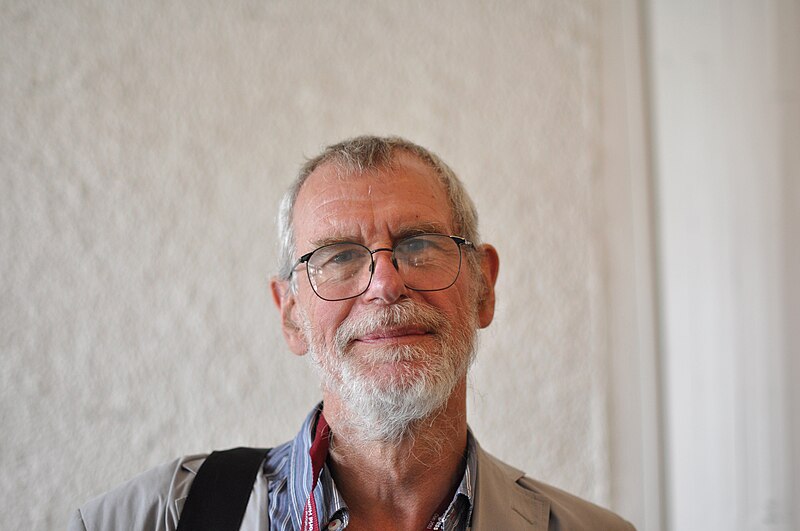This is the best short introduction to Humanism I’ve read. Part of the ‘Thinking in Action’ series from Routledge, it is systematic, clear and cool headed. People often ask me ‘What is Humanism?’ The best boiled down answer I’ve got is ‘An ethical life without superstition’
Richard Norman (Professor of Philosophy at Kent, http://en.wikipedia.org/wiki/Richard_Norman) covers all the main points with assuredness and conviction. Get yourself this book.
Enquire at your local library or consult http://www.amazon.co.uk/Humanism-Thinking-Action-Richard-Norman/dp/0415670411/ref=sr_1_1?ie=UTF8&qid=1455741322&sr=8-1&keywords=on+humanism for full bibliographic detail.
Listen to the 45 minute R4 ‘In Our Time’ podcast from this link http://www.bbc.co.uk/programmes/p00547bk With Tony Davies, Professor and Head of the Department of English, University of Birmingham and author of Humanism; Lisa Jardine, Professor of Renaissance Studies, Queen Mary College, University of London and Honorary Fellow of Kings College, Cambridge; Simon Goldhill, Reader in Greek Literature and Culture at Kings College, Cambridge.
If stimulated by Norman’s presentation of the secular world view follow up with this short selection of key works:
A shorter exercise in the assessment of the arguments is found in J.L. Mackie’s 1982 book
The Miracle of Theism. (reviewed by me here
http://sbr.lanark.co.uk/?p=2679 ) Mackie’s view is that, given the arguments and evidence, it is a miracle that theism (in any of its guises) can survive. This book has the reputation of having rattled decades of Divinity students.
Also recording the history of sceptical stances and the personal cost suffered by those brave enough to express them is Ludovic Kennedy in
All in the Mind: A Farewell to God. (1999,
http://www.amazon.co.uk/All-Mind-Farewell-Ludovic-Kennedy/dp/0340680636/ref=sr_1_4?s=books&ie=UTF8&qid=1455657135&sr=1-4&keywords=ludovic+kennedy) Kennedy examines the origins of gods from the earliest times, questions the reliability of both Old and New Testaments. He records the growth of European atheism from before the Reformation to the present. Interspersed with this, the author offers his often witty insights into how his own upbringing affected his thinking; and, in the final chapter, tells how he has found his own way to non-theistic spiritual fulfilment.
Sam Harris writes along similar lines in
The End of Faith: Religion, Terror, and the Future of Reason (2004,
http://www.amazon.co.uk/End-Faith-Religion-Terror-Future/dp/0393035158/ref=tmm_hrd_swatch_0?_encoding=UTF8&qid=1455712992&sr=8-4) This is a stark analysis of the clash of faith and reason in today’s world. Harris offers a vivid historical tour of mankind’s willingness to suspend reason in favuor of religious beliefs, even when those beliefs are used to justify destruction and heinous crimes. He asserts that in an era of nuclear weapons we can no longer tolerate views that pit one ‘true’ ‘god’ against another. He argues that we cannot even afford moderate lip service to religion. This is a concession that only blinds us to the real perils of fundamentalism. While warning against the encroachment of organized religion into world politics, Harris also draws on new evidence from neuroscience and insights from philosophy to explore spirituality as a biological, brain-based need. He calls on us to take a secular humanistic approach to solving the problems of this world. This is the only way we can save ourselves.
For a generous parcel packed with insight, and entertainingly written, no bookshelf should be without
The Portable Atheist (ed. Christopher Hitchens, first published 2007, 528 pages
http://www.amazon.co.uk/Portable-Atheist-Essential-Readings-Non-Believer/dp/0306816083/ref=sr_1_1?ie=UTF8&qid=1455519332&sr=8-1&keywords=portable+atheist) Includes pieces by Lucretius, Benedict de Spinoza, Charles Darwin, Karl Marx, Mark Twain, George Eliot, Bertrand Russell, Emma Goldman, H. L. Mencken, Albert Einstein, Daniel Dennett, Sam Harris, Richard Dawkins, Salman Rushdie, Ian McEwan, and Ayaan Hirsi Ali. A treasure and a pleasure one returns to time and again.
If you can shake yourself free of these ancient impulses you may not be happier but you’ll be less deceived (book reviewed by me here
http://sbr.lanark.co.uk/?p=2643) Battle the gods and win.
==========================================
On Humanism
224 pages in Routledge paperback edition.
ISBN 978-0415670418

Professor Richard Norman



